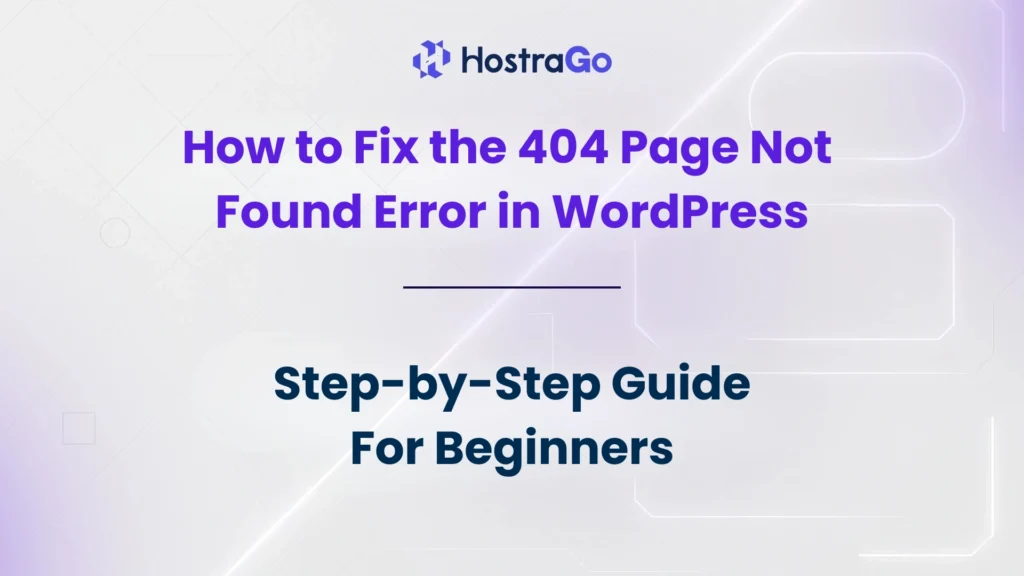When running a WordPress website, one of the most common issues you might encounter is the dreaded 404 Page Not Found Error. This error appears when a visitor tries to access a page that doesn’t exist or is temporarily unavailable. While it might look harmless, the 404 Page Not Found Error can negatively impact user experience, SEO rankings, and your website’s overall credibility.
At Hostrago, we understand how frustrating this can be for website owners. That’s why we’ve created this in-depth guide to help you understand the causes behind the 404 Page Not Found Error and, more importantly, how to fix it quickly so your visitors can enjoy a smooth browsing experience.
What Causes the 404 Page Not Found Error in WordPress?
Before fixing the issue, it’s essential to know what’s causing it. Common reasons include:
- Broken or deleted links – The page no longer exists or the URL has changed.
- Incorrect permalinks – WordPress permalink settings might not be configured properly.
- Corrupted .htaccess file – Server configuration files may be damaged.
- Theme or plugin conflicts – Certain plugins or themes can interfere with URL handling.
- DNS or server issues – Temporary server downtime or migration problems.
Methods to Fix the 404 Page Not Found Error in WordPress
Let’s go step-by-step through the most effective solutions.
1. Reset Your WordPress Permalink Settings
One of the easiest fixes is to reset your permalink settings.
Steps:
- Log in to your WordPress dashboard.
- Go to Settings → Permalinks.
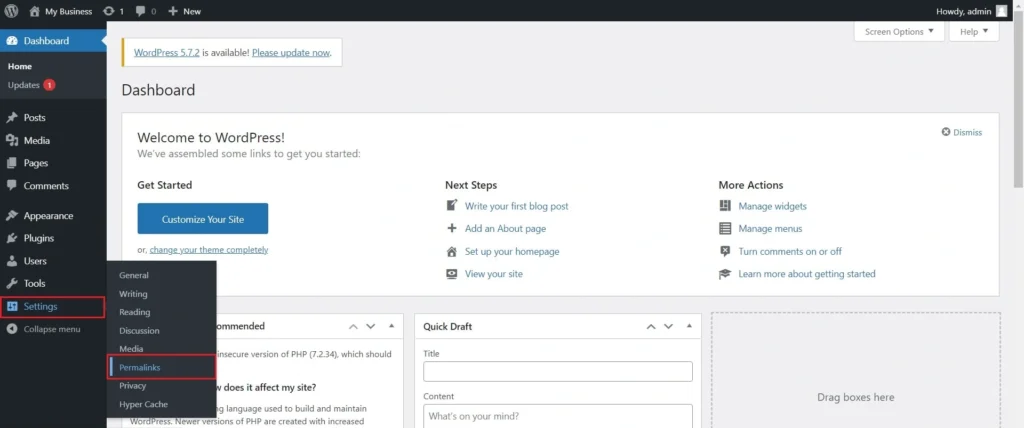
- Choose your preferred permalink structure (e.g., “Post name”).
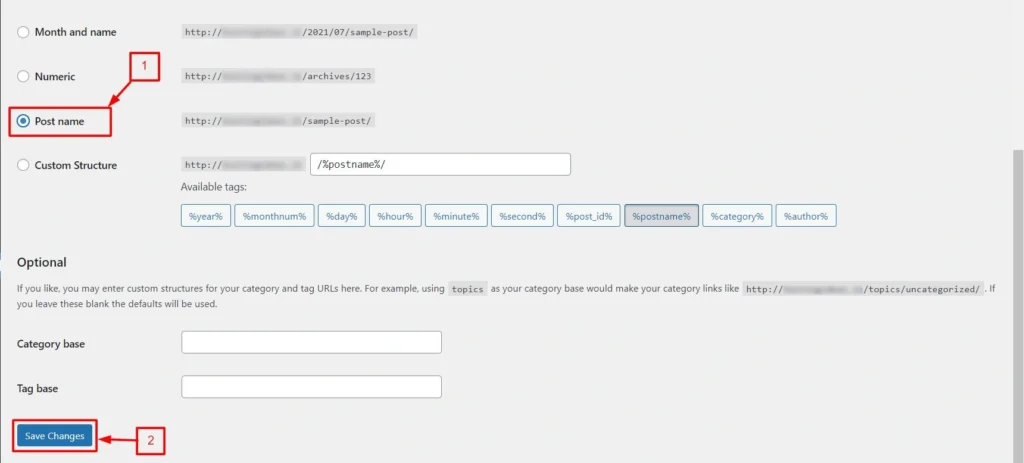
- Click Save Changes.
This action refreshes your permalink configuration, fixing broken links caused by permalink errors.
📌 Related: Check out our guide on WordPress Hosting Plans for optimized performance and stability.
2. Restore or Regenerate the .htaccess File
If your .htaccess file is corrupted, it can cause the 404 Page Not Found Error.
Steps:
- Connect to your site via FTP or File Manager (from cPanel).
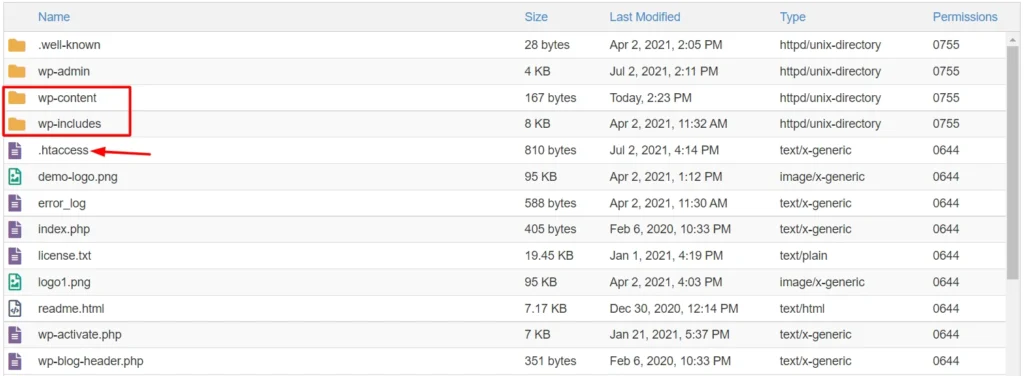
4. Paste the code given below.
# BEGIN WordPress
RewriteEngine On
RewriteBase /
RewriteRule ^index.php$ - [L]
RewriteCond %{REQUEST_FILENAME} !-f
RewriteCond %{REQUEST_FILENAME} !-d
RewriteRule . /index.php [L]
# End WordPress- Locate the
.htaccessfile in the root directory. - Click the +File button on the top-right corner of the dashboard.

- Delete the original
.htaccessfile. - Go to Settings → Permalinks in WordPress and click Save Changes to regenerate the file.
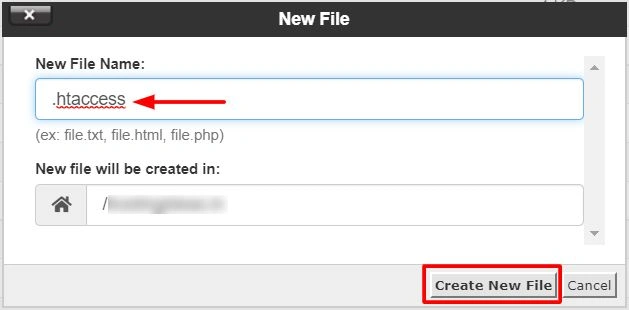
For more details on cPanel file management, see our Beginner’s Guide to cPanel.
3. Check for Plugin or Theme Conflicts
Some plugins or themes can interfere with URL routing.
Steps:
- Deactivate all plugins.
- Check if the issue is resolved.
- Reactivate plugins one by one to find the culprit.
- Switch temporarily to a default theme like Twenty Twenty-Four to see if the problem persists.
4. Clear Your Browser and WordPress Cache
Caching plugins or your browser’s cache may still be serving outdated content.
- Clear your browser cache.
- If you’re using plugins like WP Super Cache or W3 Total Cache, clear your WordPress cache.
Preventing the 404 Page Not Found Error in the Future
- Keep your permalink structure consistent.
- Always set up redirects for deleted or moved pages.
- Regularly check for broken links.
- Use a reliable WordPress hosting provider like Hostrago for maximum uptime and stability.
Conclusion
The 404 Page Not Found Error in WordPress is common but can be fixed quickly if you follow the right steps. Whether it’s a permalink reset, .htaccess regeneration, or simply fixing broken links, these solutions will help restore your site’s functionality and keep your visitors happy.
For more WordPress tips, visit the Hostrago Knowledge Base and ensure your site always performs at its best.
